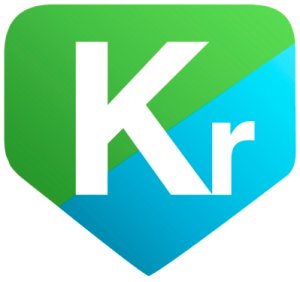 Yesterday, I made an appearance on the Tonya Hall Radio Show where we talked about online reputation measurement services such as Klout and Kred. While these services are fun to look at and watch your score as compared to your friends’ scores, they are really only a measurement of your popularity on Twitter assuming that people credit you appropriately via Twitter. These services are trying to prove that they’re more than that by allowing others to vote you up, including some offline behavior, and even a little Facebook and LinkedIn action. But the most measurable public and interconnected space is Twitter and that’s where the overwhelming majority of the measurement comes from.
Yesterday, I made an appearance on the Tonya Hall Radio Show where we talked about online reputation measurement services such as Klout and Kred. While these services are fun to look at and watch your score as compared to your friends’ scores, they are really only a measurement of your popularity on Twitter assuming that people credit you appropriately via Twitter. These services are trying to prove that they’re more than that by allowing others to vote you up, including some offline behavior, and even a little Facebook and LinkedIn action. But the most measurable public and interconnected space is Twitter and that’s where the overwhelming majority of the measurement comes from.
My main problem with these services is they very poorly measure influence through blogs. Currently, Technorati does that to a certain degree for an entire blog, but not for individual bloggers.
The BIG PROBLEM with online reputation measurement services
I believe that people who write blog posts that others share and comment on are a much greater indicator of a person’s influence than someone being @ replied or retweeted on Twitter. That’s a strong opinion, but I think it’s validated by the fact that blogs are long form multimedia content and Twitter is 140 character limited microblogging that can only link to other content. There’s no way a person can solely be an expert on anything if all they do is microblog. You must have another outlet. And most influential people do blog. Very few only express themselves through Twitter.
 These measurement services only measure your worth through how much others properly recognize you through Twitter. And the only way they can indicate that is if the user gives Twitter-specific credit (the blog author’s Twitter handle) to the content creator. It’s the only way these reputation measurement services can work. They can’t identify you via your full name and not your blog.
These measurement services only measure your worth through how much others properly recognize you through Twitter. And the only way they can indicate that is if the user gives Twitter-specific credit (the blog author’s Twitter handle) to the content creator. It’s the only way these reputation measurement services can work. They can’t identify you via your full name and not your blog.
What that means is the following:
If you share this article on Twitter with your friends, and don’t include my Twitter handle, @dspark, and others click the link and you get retweeted, then YOU get the increase in reputation score. I get nothing, zero, zip. This is partially equivalent to plagiarism. While not intentional, these services are giving you credit for my work and I’m not being acknowledged or recognized for it.
These reputation scoring services do not connect a person’s Twitter profile with their blog. They have known about this problem for a long time. I mentioned this to Klout more than a year and a half ago and I got a “we’re working on it” response. The CEO of Kred just recently said the same thing to me in a Twitter chat and invited me to help them.
There is a solution. Why aren’t they using it?
Here’s my answer. FriendFeed figured it out years ago and many of the people search engines figured it out as well. People voluntarily and involuntarily connect all their real and social identities. So if I know your Twitter handle I can discover your real name, blog, YouTube account, Flickr account, etc. If this information is readily available then you should be able to connect someone’s Twitter handle to their blog and every other social identity. So if someone retweets an article of mine, but doesn’t use my Twitter handle, it should be easy to do a lookup of the blog address, and the author of the blog post. This problem is very fixable, yet I don’t understand why they’re not fixing it.
I would love to be proven wrong on this, but I’ve yet to see any new results. For more about how people can game their reputation score solely through sharing, read my article on Mashable “Why Sharing Online Content Might Be Too Easy” and my piece on Spark Minute “Here’s What’s Wrong with Social Media: Sharing Without Consumption.”
Stock image of pirate flag on keyboard courtesy of Shutterstock.




